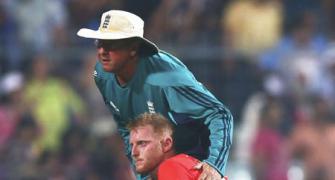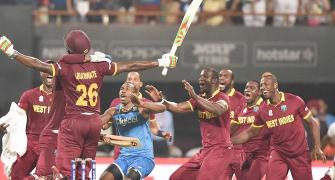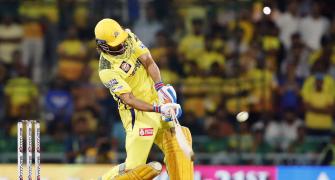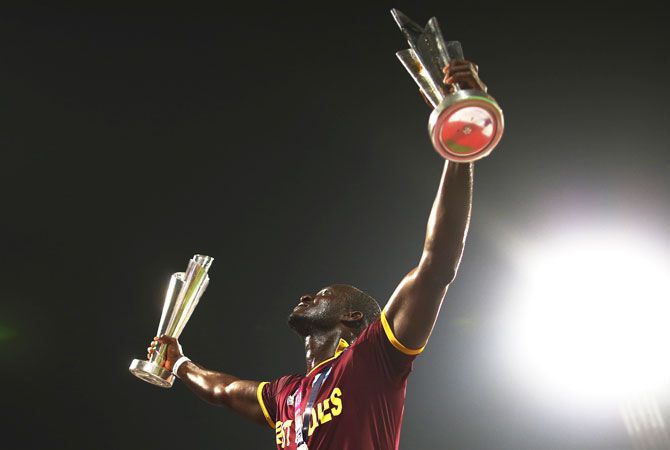
'He spoke to the fact that his West Indies -- a team that brings joy wherever it goes, the one team that plays with a carefree spirit in these days of carefully calibrated professionalism -- played this tournament enveloped in a world of hurt,' says Prem Panicker, the legendary cricket writer, reviewing the World T20 final.
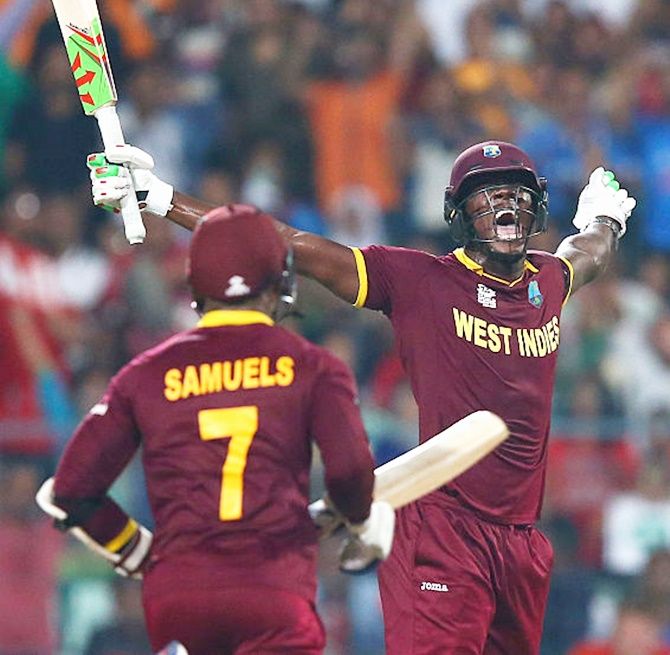
Two images. Twenty-four hours after a World T20 final for the ages, that is all you remember: Two images from 22 yards apart that spanned triumph and despair, and encapsulated the emotional arc of sport.
At one end of the pitch, Carlos Brathwaite uncoiled to his full height, cut loose with the feral roar of a predator that had brought down his prey, and pounded his clenched fist into his chest.
Marlon Samuels danced around him, trying to attract his attention for a high five, but Brathwaite didn't notice. Eden Gardens rose to him, as did his mates in the dugout he had turned to face, but he ignored them.
The extraordinary violence he had summoned up from deep within needed to vent against something more substantial than a small white ball. And so he clenched his fist till the knuckles shone white, and he thumped his chest over and over, passion expressed as percussion.
At the other end, Ben Stokes sank down to his haunches for the third time in as many balls, his unseeing eyes focused on the turf. He had begun this year confirmed as England's new boy wonder. His innings of raw savagery against the Proteas at Newlands prompted the pundits to skip a generation and compare him not to Freddy Flintoff but to the archetype, Ian Botham himself.
On the day, he had fielded well, caught with assurance, and bowled restrictively, shrugging off the disappointment of having a catch dropped off him in the deep.
All he had to do now was to defend 19 off 6. In the league game against the same opposition at the Wankhede, he had bowled what proved to be the penultimate over of the game, and he gave away just ten against a rampaging Chris Gayle then batting 99 off 46.
In the semi-final just the other day against New Zealand, he had bowled the last over and taken two wickets for a total of three runs, two of them extras. He had been there, done that. This final game was his to win.
Then, in the space of five manic minutes and three pulverising blows that dented the concrete stands behind square leg and long off, he went, in Babe Ruth's words, from hero to bum. And he sat there on his haunches, his fingers furrowing his hair, his unseeing eyes fixed on the turf in front of him.
'You realise where you are, and what you are doing there, and what just happened to you,' Floyd Patterson told the writer Gay Talese after the September 25, 1962 world heavyweight title fight against Sonny Liston where he was knocked out inside 122 seconds. 'And what follows is a hurt, a confused hurt -- not a physical hurt -- it's a hurt combined with anger; it's a what-will-people-think hurt; it's an ashamed-of-my-own-ability hurt... and all you want then is a hatch door in the middle of the ring -- a hatch door that will open and let you fall through and land in your dressing room instead of having to get out of the ring and face those people. The worst thing about losing is having to walk out of the ring and face those people...'
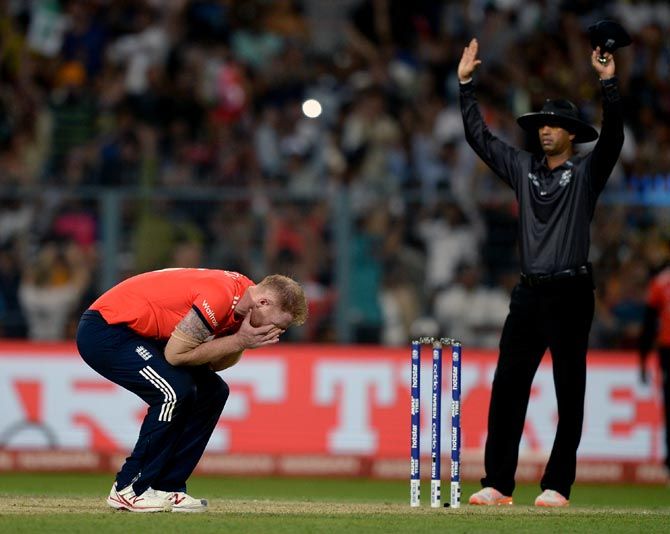
It was that 'hatch door' Stokes sought in the ground at his feet -- but the game, then being played at its most primeval, was not done with him yet. One more ball remained to be bowled. One more humiliation remained to be endured.
At that point, a perfect yorker producing a wicket would have provided some balm, even if it did nothing to alter the result. He could have even lived with a squirted single off the edge of the bat -- a 'moral victory' to ease the sting of real defeat.
But he ran in again, and Brathwaite lofted him again, and he stood there and watched the ball disappear into the night sky again, and he sank to his haunches yet again, for one last time.
You had to go back to that Patterson-Liston fight to find words to fit the occasion. 'To watch Liston overcome Patterson in tapes of their fights,' the brilliant Joyce Carol Oates wrote then, capturing a thought that would today be deemed racist, 'is to watch the defeat of "civilisation" by something so elemental and primitive it cannot be named...'
'Civilised' death overs bowling as we know it -- the full length, the slanting angles, the variations in pace, all backed by hours of practice and even more hours of coaching and tactical analysis -- was matched in gladiatorial contest against power, and passion, and confidence, and self belief. And there was no hole in the turf to provide the vanquished an escape route.
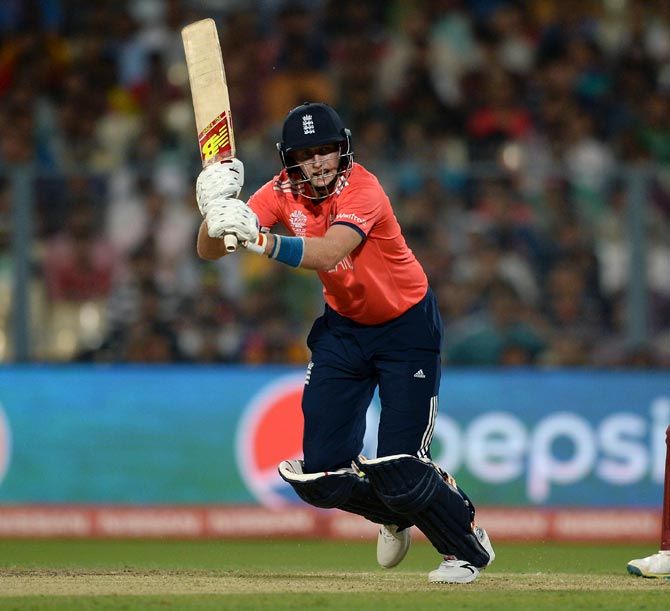
Ooutcomes are what sport is played for, but individuals, and individual moments, are how games are remembered. Twenty-four hours after the pulsating final, all that remains in memory are three, maybe four individuals and as many moments.
Like Samuel Badree, who has organised his leg-spin along principles so simple that paradoxically, he creates insurmountable complexities for batsmen looking to score off him.
His bowling is about angles and about trajectories that prod at a batsman's muscle memory and pull his technique apart at the seams. On the day, he bowled a first spell that was simple, elegant, devastatingly effective.
Like Joe Root, now engaged in crafting his own mythology. 'Once upon a time there lived a prince of the batting crease and his name was Joe Root...' To watch him play impossibly late, with dancing feet and a bat he wields with delicate precision to smuggle the ball past seemingly impenetrable fields, is to revel in the classics while everyone around you is snacking on Chetan Bhagat.
And -- anything is possible in fairytales -- he can on his day take a one-over old ball and baffle the biggest of big hitters with line and length rubbish. Like the guy said on Twitter of his cricketing twin Virat Kohli the other day, the only thing Root is yet to do is stump a batsman off his own bowling.
Like Jos Buttler, who came in with England at a precarious 23/3 and, with judicious hitting including back to back sixes of Suleman Benn in the 11th, created the space for his partner to put down roots, and to flourish.
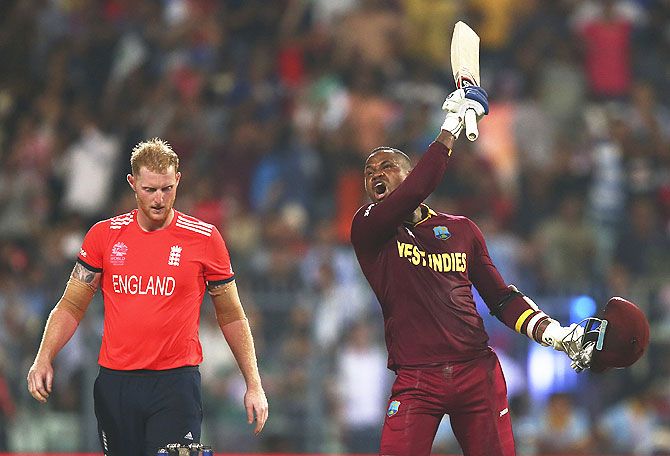
Like Marlon Samuels, who turns up for the big games and bosses them with seeming omnipotence. Much has already been written, and more will be, on Brathwaite's quartet of big hits, but it was Samuels in the 15th, with a four to begin the over and two effortless sixes into the straight field to end it, who kept the Windies in the game and set up that electric finish.
Samuels batted with a serene composure in adversity that, on the day, contrasted oddly with a shocking gracelessness in triumph, as witness the spittle-spewing venom he reportedly directed at the shattered Stokes after Brathwaite's score-levelling six, and an even more condemnable performance in the press conference that followed.
We will remember this final for the many deeds of a select few. We will remember it for a final four balls that Brathwaite clobbered out of the ground and into the storybooks. And we will remember it too for the thing that did not happen; we will remember it for the smile that did not come.
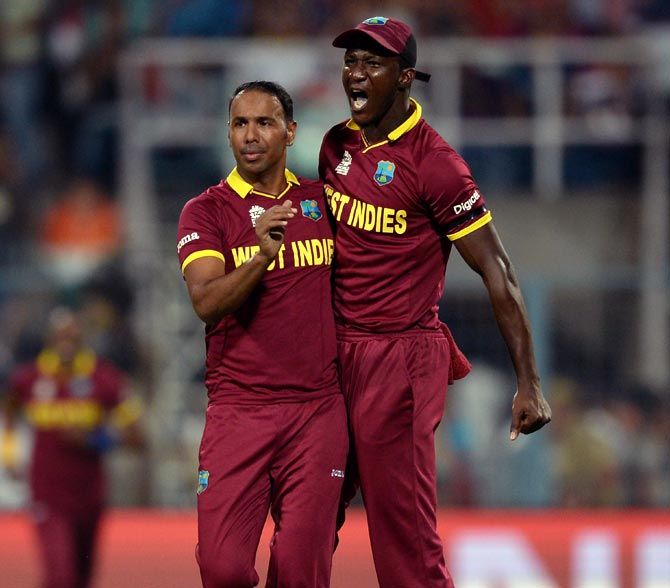
Darren Sammy smiles, even in adversity. When things are going well for his team, his smile widens till it threatens to split his head in two. But in that euphoric aftermath of an improbable win, Sammy did not smile.
'You really want to know, Nass?' he responded when Nasser Hussain asked him to contrast the 2012 win with this latest one. And then he spoke, head hunched between those broad shoulders, eyes resolutely on the ground.
He spoke of the pain of waking up on the morning of the big game and finding messages from all and sundry, but not a single one from the West Indies cricket board. He spoke of the hurt the team felt when a member of the punditry, himself a former player, called his team brainless.
He spoke, his voice breaking, of how team manager Rawl Lewis had to scramble at the last minute to get his players jerseys to play in, because his board had not equipped the team for the tournament. And he spoke of the uncertainty that hangs over him and several of his stellar comrades.
'I don't know when I am going to be playing for the West Indies again,' he said. 'I don't know when we will be selected again...'
It is beyond the scope of this column to examine the reasons behind the acrimony that has characterised relations between the players and the board. Nor is it the point, here, to examine the economic reasons why the West Indies -- more a notion than a nation -- has forced the best players of this generation to become itinerant mercenaries who, to misquote Gideon Haigh, wander the world making a living hitting small balls out of small grounds with their big bats.
Sammy spoke not to the facts, but to the feelings that pervaded the team -- a feeling of bewildered hurt, a sense of being betrayed by the very board that exists to look after the team's welfare.
He spoke to the fact that his West Indies -- a team that brings joy wherever it goes, the one team that plays with a carefree spirit in these days of carefully calibrated professionalism -- played this tournament enveloped in a world of hurt.
On a day when first the West Indies women against Australia, then the men against England, completed the unprecedented trifecta the Under-19 team had begun with a win over India earlier this year, this is what finally lingers in memory: That Darren Sammy did not smile.

